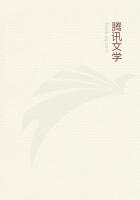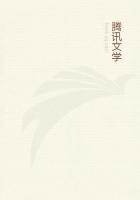The greatest light is thrown upon the nature of language by analogy. We have the analogy of the cries of animals, of the songs of birds ('man, like the nightingale, is a singing bird, but is ever binding up thoughts with musical notes'), of music, of children learning to speak, of barbarous nations in which the linguistic instinct is still undecayed, of ourselves learning to think and speak a new language, of the deaf and dumb who have words without sounds, of the various disorders of speech; and we have the after-growth of mythology, which, like language, is an unconscious creation of the human mind. We can observe the social and collective instincts of animals, and may remark how, when domesticated, they have the power of understanding but not of speaking, while on the other hand, some birds which are comparatively devoid of intelligence, make a nearer approach to articulate speech. We may note how in the animals there is a want of that sympathy with one another which appears to be the soul of language. We can compare the use of speech with other mental and bodily operations; for speech too is a kind of gesture, and in the child or savage accompanied with gesture. We may observe that the child learns to speak, as he learns to walk or to eat, by a natural impulse; yet in either case not without a power of imitation which is also natural to him--he is taught to read, but he breaks forth spontaneously in speech. We can trace the impulse to bind together the world in ideas beginning in the first efforts to speak and culminating in philosophy. But there remains an element which cannot be explained, or even adequately described. We can understand how man creates or constructs consciously and by design; and see, if we do not understand, how nature, by a law, calls into being an organised structure. But the intermediate organism which stands between man and nature, which is the work of mind yet unconscious, and in which mind and matter seem to meet, and mind unperceived to herself is really limited by all other minds, is neither understood nor seen by us, and is with reluctance admitted to be a fact.
Language is an aspect of man, of nature, and of nations, the transfiguration of the world in thought, the meeting-point of the physical and mental sciences, and also the mirror in which they are reflected, present at every moment to the individual, and yet having a sort of eternal or universal nature. When we analyze our own mental processes, we find words everywhere in every degree of clearness and consistency, fading away in dreams and more like pictures, rapidly succeeding one another in our waking thoughts, attaining a greater distinctness and consecutiveness in speech, and a greater still in writing, taking the place of one another when we try to become emancipated from their influence. For in all processes of the mind which are conscious we are talking to ourselves; the attempt to think without words is a mere illusion,--they are always reappearing when we fix our thoughts. And speech is not a separate faculty, but the expression of all our faculties, to which all our other powers of expression, signs, looks, gestures, lend their aid, of which the instrument is not the tongue only, but more than half the human frame.
The minds of men are sometimes carried on to think of their lives and of their actions as links in a chain of causes and effects going back to the beginning of time. A few have seemed to lose the sense of their own individuality in the universal cause or nature. In like manner we might think of the words which we daily use, as derived from the first speech of man, and of all the languages in the world, as the expressions or varieties of a single force or life of language of which the thoughts of men are the accident. Such a conception enables us to grasp the power and wonder of languages, and is very natural to the scientific philologist. For he, like the metaphysician, believes in the reality of that which absorbs his own mind. Nor do we deny the enormous influence which language has exercised over thought. Fixed words, like fixed ideas, have often governed the world. But in such representations we attribute to language too much the nature of a cause, and too little of an effect,--too much of an absolute, too little of a relative character,--too much of an ideal, too little of a matter-of-fact existence.
Or again, we may frame a single abstract notion of language of which all existent languages may be supposed to be the perversion. But we must not conceive that this logical figment had ever a real existence, or is anything more than an effort of the mind to give unity to infinitely various phenomena. There is no abstract language 'in rerum natura,' any more than there is an abstract tree, but only languages in various stages of growth, maturity, and decay. Nor do other logical distinctions or even grammatical exactly correspond to the facts of language; for they too are attempts to give unity and regularity to a subject which is partly irregular.
We find, however, that there are distinctions of another kind by which this vast field of language admits of being mapped out. There is the distinction between biliteral and triliteral roots, and the various inflexions which accompany them; between the mere mechanical cohesion of sounds or words, and the 'chemical' combination of them into a new word; there is the distinction between languages which have had a free and full development of their organisms, and languages which have been stunted in their growth,--lamed in their hands or feet, and never able to acquire afterwards the powers in which they are deficient; there is the distinction between synthetical languages like Greek and Latin, which have retained their inflexions, and analytical languages like English or French, which have lost them. Innumerable as are the languages and dialects of mankind, there are comparatively few classes to which they can be referred.















